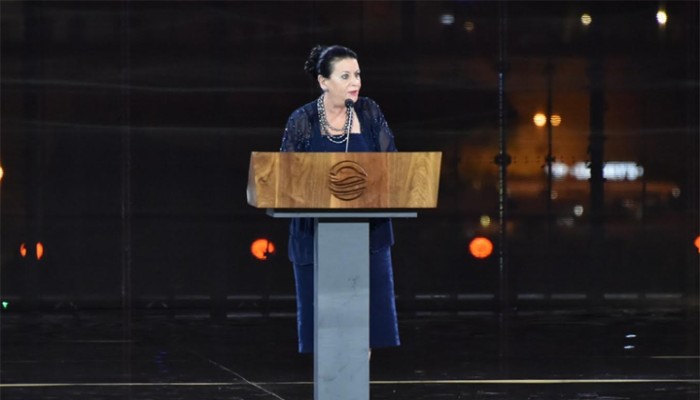
The first production of a film in Malta materialised in 1925. Nearly a hundred years have elapsed and throughout these hundred years there were various attempts to establish a viable film-producing industry on our islands.
After the resounding success of the film Gladiator in the year 2000 and also the success of Troy in the year 2004, in 2005, a concrete step was taken to put the film industry on a sound and regulated footing.
This resulted when Act VII of 2005 was unanimously approved by our Parliament.
This unanimous approval signifies that there is general agreement that the development of a stable and sustainable film industry in Malta is of benefit to its people.
In order to be sustainable, the film industry has challenges which have to be faced, tackled, and surmounted one by one.
These challenges are ongoing: foremost among them is a sustained promotion action plan, which entails marketing from year to year, and also has to take into account changing international scenarios of the industry. Hence, the promotion of the film industry is a perennial challenge.
At the forefront of all promotional activities engaged in by the Film Commission, and the Film Commissioner, is the fact that the promotion of the industry cannot but be essential.
In this regard, the promotion of the film industry must seek to overcome the perception that the filmmaking industry does not provide a year-long occupation.
This situation brings to mind the situation in the tourism industry when the tourism industry, before its acute promotion by different administrations, was seasonal in character. The perception was that the tourism industry was not stable in character and did not provide job security for those who worked in the sector.
Continuous and ongoing promotion is necessary; as a result of the fact that the film industry is different project based; namely different productions of different films.
The order book for our film facilities has got to progressively indicate that, once a film production is finalised, there are other film productions in the pipeline.
This is the reason why continuous promotion of the industry is of primary importance and essential if the film industry is to develop into one of the pillars of the Maltese economy.
The Mediterrane Film Festival was first held last year; this is its second edition. It is a business development tool; also, one cannot underestimate the highly positive impact that the film industry can indirectly have on Malta’s international image, in ways that may result beneficial for other major industries.
The challenge of effective promotion is being given priority by the Film Commission and the Film Commissioner.
Whilst in 2017 around 300 local workers used to work in the film industry and this only for a short period of time and sporadically, at the present time, around one thousand local workers work in the film industry, the majority of them throughout the year, from one year to the next, from one production to the next!
In this current year, quite recently, there was an important development when an agreement was signed whereby local workers were accorded the same conditions as foreign workers who work in the local film industry.
This agreement put in place just and equitable working conditions for those doing the same kind of work. When justice and equity underlie the conditions of the workforce, there is less room for industrial unrest, and therefore encourages industrial peace for the industry.
This is laudable. But one must always keep in mind that the film industry must necessarily operate within a framework which fosters the public’s trust in the industry.
In order to foster the public’s trust in its operations, the Commission and the Commissioner have to keep in mind and respect the principles of accountability and good governance: Good Governance both in internal structures and operations, and this in a way that this is perceivable from the outside, particularly by Maltese society at large.
Accountability and good governance, not least transparency, have to inspire decision-making. These principles should be at the basis of all operations, year in year out.
Money from the national coffers is being continuously invested in the film industry; this results clearly from the financial estimates passed by Parliament year after year.
Suffice it to say that, from the financial estimates for the current year 2024, a global figure of 39.8 million is being earmarked for the film industry. This projected figure is financial input from the state coffers in order to strengthen and reinforce, and make more competitive, the film industry.
Three million of these are to be utilised in the upgrading of the film facilities, whilst another 35 million are to be used for incentives.
I emphasise that this is the people’s money.
Accountability and transparency cannot be underestimated. These values, together with the diffusion of information, are the basis for fostering and nurturing the people’s trust in the film industry.
With the goodwill and dedication of all those involved, I augur that the film industry continues to develop, grow, and evolve, and indeed transform itself into one of the pillars of the Maltese economy, valued as such by the people.
Thank you.
By commenting you are accepting our Comment Policy.